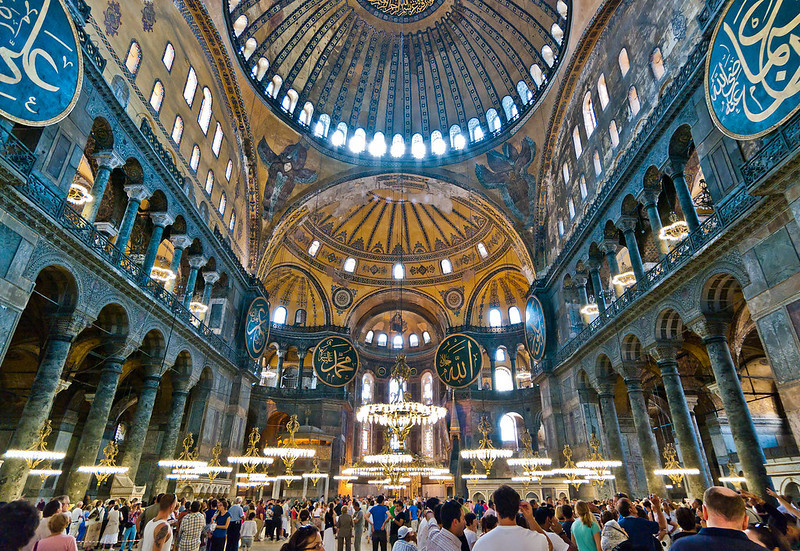
Hagia Sophia, a basilica and a UNESCO World Heritage site located in Istanbul, Tukey, has been converted into a mosque from a museum.
On Friday of July 10, 2020, the Turkish court annulled a 1934 presidential decree that made it a museum.
Soon after, the Turkish president, Recep Tayyip Erdogan, ordered the Hagia Sophia to be converted back into a mosque and announced the opening of Friday prayers at Hagia Sophia on July 24 in a televised speech.
"Since it's status as a museum is changed, we are canceling the entrance fees. Like all mosques, its doors will be open to everyone--Muslim or non-Muslim. As the world's common heritage, Hagia Sophia, with its new status, will keep on embracing everyone in a more sincere way," Erdogan said.
Hagia Sophia was initially built as a Christian Cathedral under Constantinople of the Roman Empire before it was claimed as a Roman Catholic Cathedral and then an Ottoman mosque in 1453 when the Ottomans conquered the city, Constantinople, which they renamed as Istanbul.
Hagia Sophia endured as a mosque until it became a museum in 1935 under the decree of the founder of the Republic of Turkey and also secularist, Mustafa Kemal Ataturk.
The US Secretary of State, Mike Pompeo, urged Turkey to keep the basilica as a museum and "as an exemplar of its commitment to respect the faith traditions and diverse history that contributed to the Republic of Turkey, and to ensure it remains accessible to all."
As a response, Turkish diplomate Hami Aksoy said, "Turkey has been delicately cherishing the historical, cultural, and spiritual value of Hagia Sophia since its conquest."
"On this occasion, we remind once again a reality that we have to repeat constantly. The Hagia Sophia is the property of Turkey, like all our cultural assets located on our land," Aksoy shared.


















